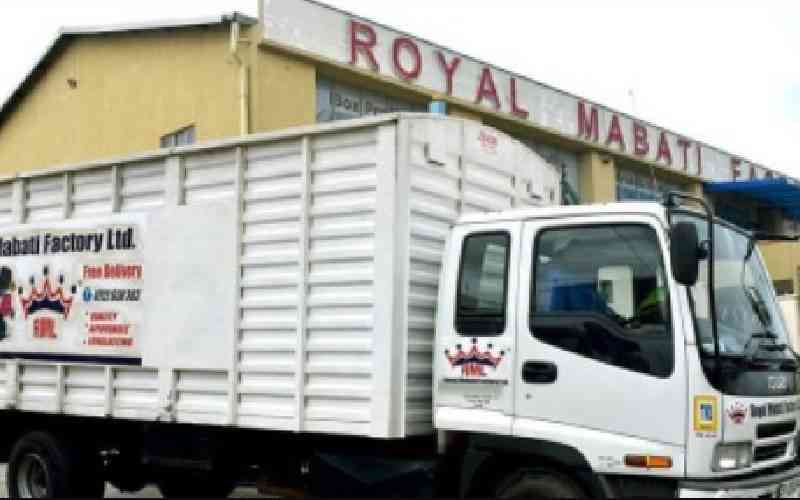By James Wanzala
Whenever one hears of Mwea, a town situated on the Embu-Nairobi Highway in Kirinyaga County and about 98 kilometres from Nairobi, what comes to mind is the rice farming associated with the area.
What people do not know, however, is that the town’s original name originated from the word Ngurubani, coined from Kiswahili word Gorofani, which means, inside a storey house.
The town came into existence in the early 1960s when rice farmers under the white settlers used to come to collect rice cash from the only storey house, which was their bank in the town.
So, they would say, “Let us go to gorofani”, but they pronounced it ngorobaine, hence the name of the town at the time became Ngurubani. The first storey building is still there and it houses Mwea Multipurpose Cooperative Society.
History has it that the initial inhabitants of this town were African colonial detainees who later became labourers who were arrested from different places and detained at Kathigiriri. They used to live in shanties in areas of Kamucege and Kiamanyeki. The detainees dug canals, prepared the shambas to plant rice, and were given land in return as tenants. The colonial government researched the once plain, flat land of Mwea in the 1950s and saw it was good for rice farming. It was later gazetted as an irrigation scheme.
Today, Mwea is divided into two: Mwea East and Mwea West constituencies. Before, it was Kirinyaga South, which was later divided into Kirinyanga South and North. Mwea East is in Kirinyaga South whereas Mwea West is found in Kirinyaga North. Mwea town is in Kirinyaga South.
The 2009 census gave the population of Mwea constituency as 176,261. Since then, the population has grown fast, thanks to the liberalisation of rice farming, which used to be controlled by the colonialists through the National Irrigation Board, a body that still exists.
“You would harvest rice and all of it is taken by the white settlers, leaving farmers with a little for consumption,” said John Muriithi, the general manager of Mwea Rice Growers Multipurpose Cooperative Society Ltd.
Rice farming — the main economic activity here — has seen the growth of huge milling companies like Mwea Rice Millers and Nice Rice Millers. There are also small factories that offer employment opportunities. Many people have migrated from different parts of the country to come and cultivate rice or trade in rice. There is also horticultural farming, which goes hand in hand with rice farming.
The new county government has started building more staff offices at the former DC’s premises, with Kerugoya town as the county’s headquarters. A number of commercial banks have also pitched tent in Mwea town.
Despite it’s business growth, the real estate sector is still underdeveloped. The hotel industry, on the other hand, is growing fast due to traders who come to buy rice from far and sometimes have to spend the night in here.
The education sector is also behind — there is not a single college in the town. Students from Mwea seek further education in neighbouring towns like Thika, Embu, Meru and Nairobi.
Most of the storey buildings in the town house banks, supermarkets, rental houses and micro-finance institutions.
No developer
According to Muriithi, the town is growing, but at a slow pace. A while back, it was small and buildings were found only on the main highway.
“There is hardly any developer around to provide housing for residents. This is because land ownership is still under trusteeship; the land under rice cannot be developed,” says Nthiga Elphantus, a property development and real estate manager at Great Vision.
Another reason, he says, is that land has been subdivided into smaller units, a fact that has discouraged buying of land by potential developers.
It is also said most of the land is owned by the National Irrigation Board, and the rest is owned by the once colonial labourers. A good chunk of the land lacks title deeds.
Lack of development has also been attributed to ‘foreign’ farmers who come from towns outside Kirinyaga County and lease rice farms and after harvesting and selling, go back to invest in their hometowns.
“Although there is no property developments, land prices are rising slowly as the town gears up for new developments. In the year 2000, an acre in prime areas like Kibibi, Kamunyeki and Gathigirii, was going for Sh150,000. Today, an acre costs between Sh400,000 and Sh2.5million, while a 50 by 100 metres (piece of land) costs Sh800,000,” says Elphantus.
For land bordering the Embu-Nairobi highway, a 50 by 100 metres piece of land costs Sh1.6million, whereas an acre goes for between Sh4million and Sh5million.
A single room with water and power rents for between Sh1,300 and Sh1,500, per month depending on the location. In some parts of the town, a two-bedroom house goes for Sh7,000 per month.
The most common means of transport in the town are donkeys and boda bodas. There are no matatus that ply the interior parts because of poor roads with only one tarmacked road. Donkeys pulling carts full of sacks of rice to the factories are a common sight. Residents say a lot needs to be done in terms of town planning.
Clean drinking water is also a challenge in the town, with much of the water coming from canals in the rice farms.
“Although we get piped water, it is sometimes dirty, especially during the rainy season,” says an attendant at Mates Guest House.
The town has an open air Hypermarket that houses stalls for clothes, vegetables and groceries. Eastmart, situated opposite Merica Petrol Station, is the only supermarket in the town. A shopping complex and offices at Mluvala area are coming up.
Charles Njiru Mkombozi, one of the investors driving the economy and development of the town, says banks in the town should come up with mortgage facilities to help property developers invest in the unexploited real estate sector since Mwea is now growing.
Some blame former leaders for lack of development of the town. They say there is an urgent need for investors in education and real estate to invest in the town since the area is ripe for development in the two sectors.
The town lacks street lighting and drainage system, making it a ghost town once dusk sets in.
 The Standard Group Plc is a multi-media organization with investments in media
platforms spanning newspaper print operations, television, radio broadcasting,
digital and online services. The Standard Group is recognized as a leading
multi-media house in Kenya with a key influence in matters of national and
international interest.
The Standard Group Plc is a multi-media organization with investments in media
platforms spanning newspaper print operations, television, radio broadcasting,
digital and online services. The Standard Group is recognized as a leading
multi-media house in Kenya with a key influence in matters of national and
international interest.
 The Standard Group Plc is a multi-media organization with investments in media
platforms spanning newspaper print operations, television, radio broadcasting,
digital and online services. The Standard Group is recognized as a leading
multi-media house in Kenya with a key influence in matters of national and
international interest.
The Standard Group Plc is a multi-media organization with investments in media
platforms spanning newspaper print operations, television, radio broadcasting,
digital and online services. The Standard Group is recognized as a leading
multi-media house in Kenya with a key influence in matters of national and
international interest.









